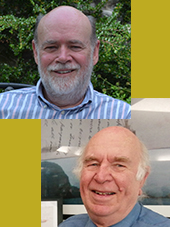Donate Join AMiE Contact Us | Login | Register |



Donate Join AMiE Contact Us | Login | Register |



.png)
Immerse yourself in SEND 2025, a month-long event dedicated to supporting and empowering professionals and educators involved in Special Educational Needs and Disabilities (SEND)
New eBook out now! Designed to be completed by small groups of KS3 and/or KS4 learners, the 13 Codebreaking Challenges in this book provide an alternative setting in which to practise essential skills.
For children aged 9-11, the PMC is a fun, engaging and thought-provoking challenge for upper primary pupils. Orders are closed for 2025.

Coming soon: find out how members can shape, influence and contribute to AMiE's work

We are delighted to announce that Dr Chris Pritchard and Bill Richardson MBE have been awarded honorary membership of the MA.

Yorkshire Branch Meeting on October 4 2025 in the School of Mathematics at the University of Leeds